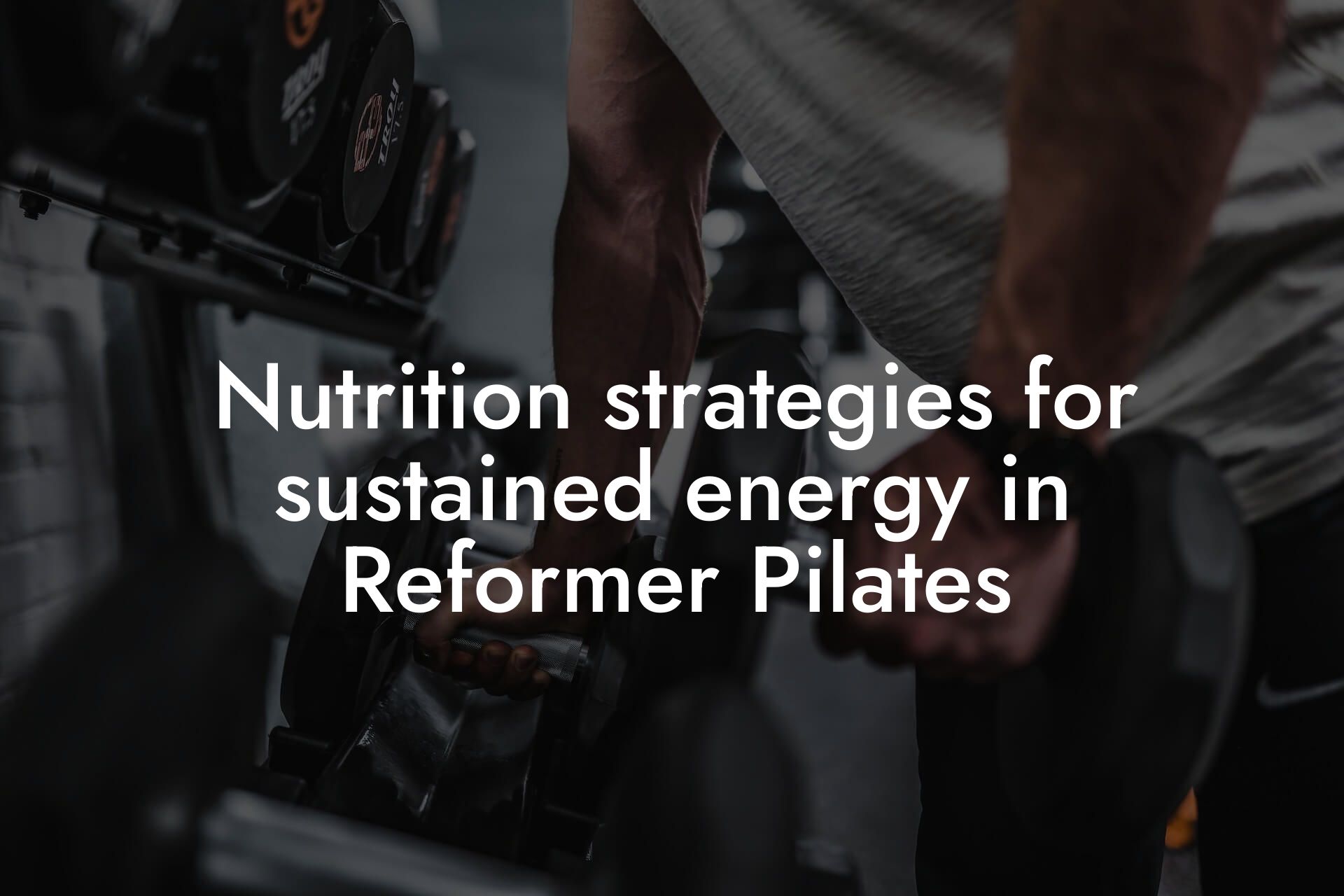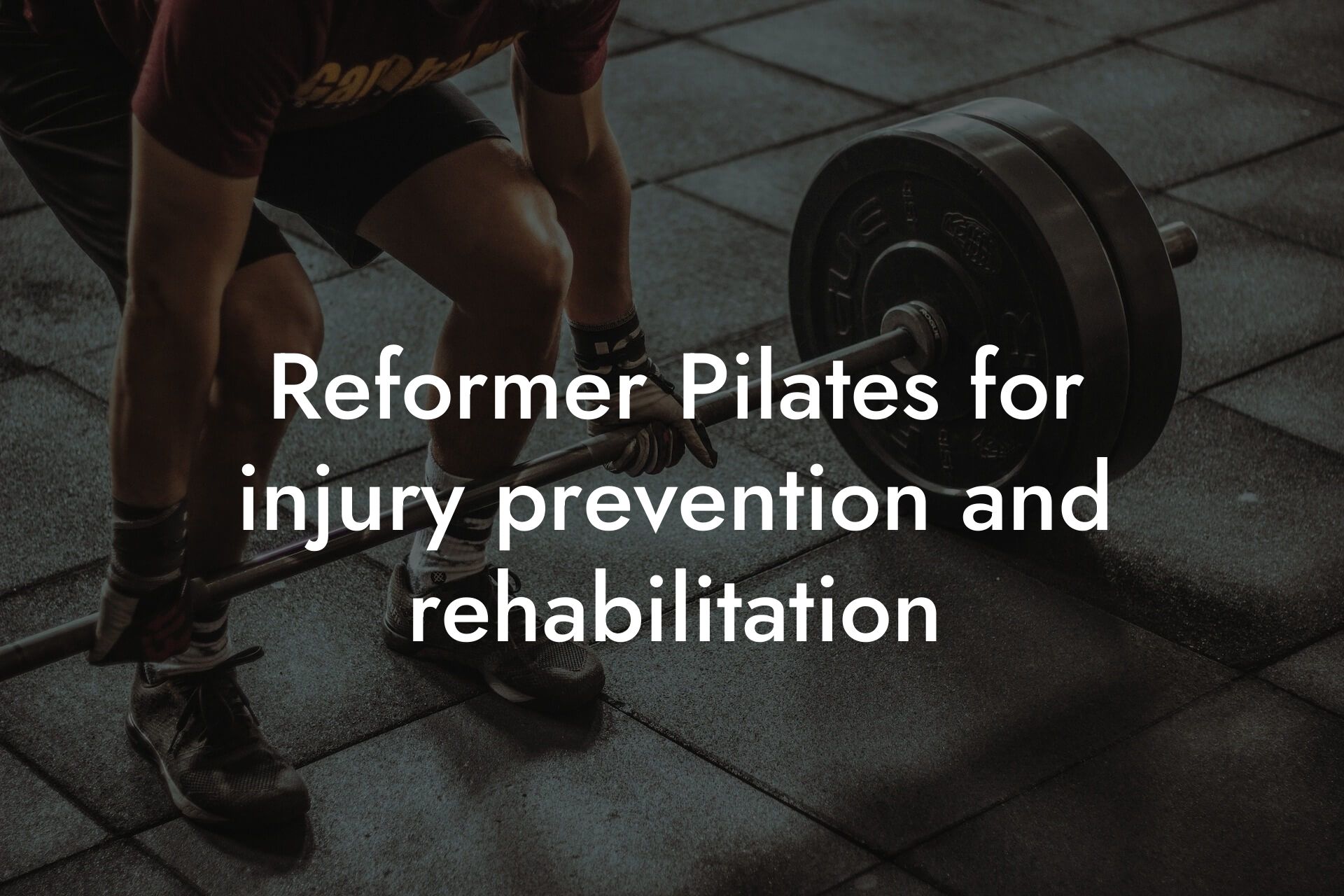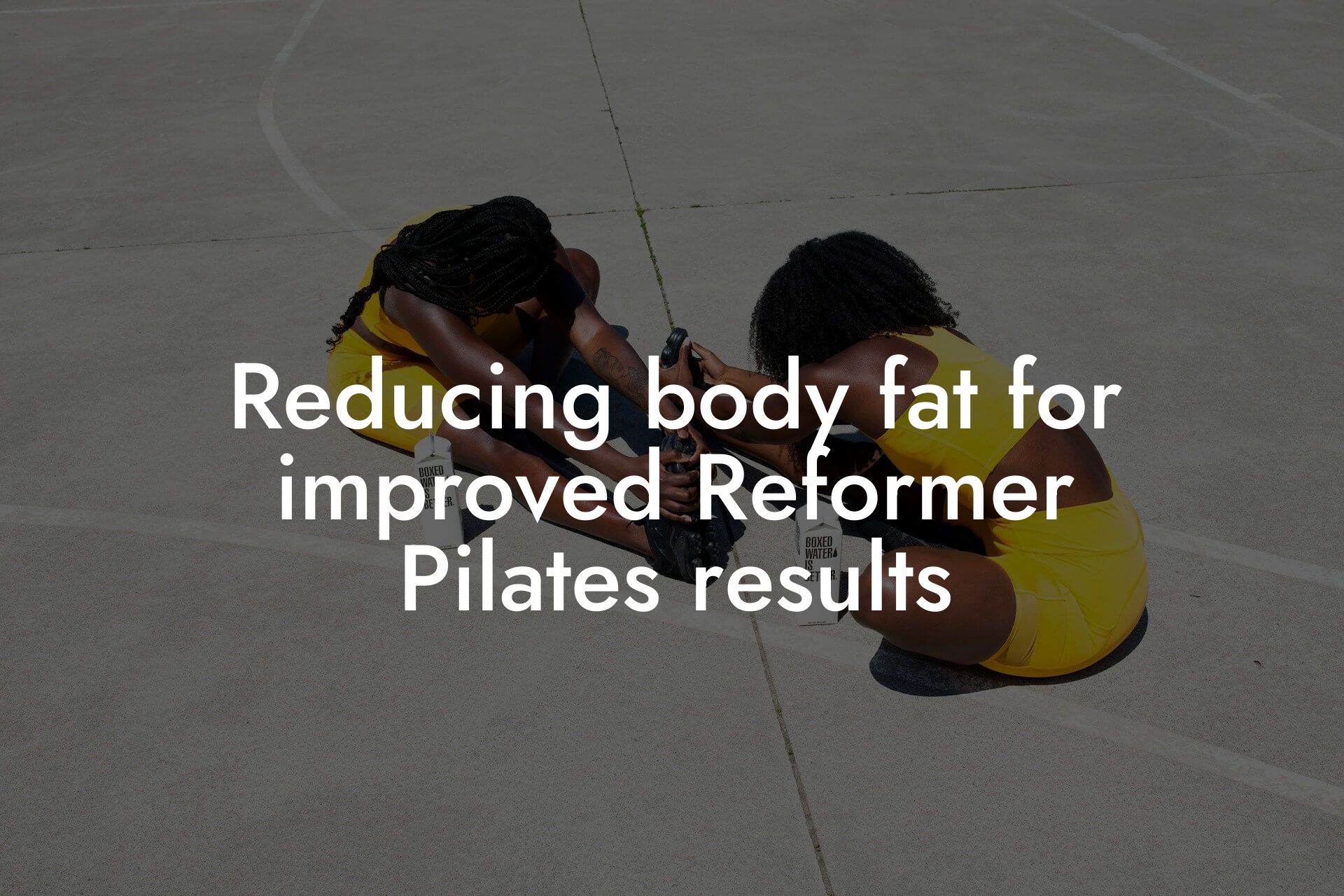As a high-earning professional, you understand the importance of maintaining a healthy and fit physique. Engaging in regular exercise, such as Reformer Pilates, is an excellent way to achieve this goal. However, have you ever wondered how your body composition affects your performance on the Reformer? In this article, we'll delve into the world of body composition and explore its impact on Reformer Pilates performance.
Table of Contents
- What is Body Composition?
- The Importance of Body Composition in Reformer Pilates
- How Body Fat Affects Reformer Pilates Performance
- The Role of Lean Mass in Reformer Pilates
- How Bone Density Impacts Reformer Pilates Performance
- Assessing Body Composition for Optimal Reformer Pilates Performance
- Using Body Composition Data to Improve Reformer Pilates Performance
- Frequently Asked Questions
What is Body Composition?
Body composition refers to the percentage of fat and lean mass in your body. It's a critical aspect of overall health and fitness, as it can affect your metabolism, energy levels, and even your mental well-being. A healthy body composition is characterized by a balance between fat mass and lean mass, with the ideal ratio varying depending on age, gender, and other factors.
The Importance of Body Composition in Reformer Pilates
When it comes to Reformer Pilates, body composition plays a significant role in determining your performance. A well-balanced body composition can enhance your flexibility, strength, and overall movement quality, allowing you to execute exercises with precision and control. On the other hand, an imbalanced body composition can lead to poor posture, reduced mobility, and increased risk of injury.
How Body Fat Affects Reformer Pilates Performance
Excess body fat can negatively impact your Reformer Pilates performance in several ways. Firstly, it can reduce your mobility and flexibility, making it more challenging to move your joints through a full range of motion. Secondly, excess body fat can increase your risk of injury, as it can put additional stress on your joints and muscles. Finally, high levels of body fat can also affect your balance and coordination, making it more difficult to maintain proper form and control during exercises.
The Role of Lean Mass in Reformer Pilates
Lean mass, on the other hand, is essential for optimal Reformer Pilates performance. It includes muscle mass, bone density, and other non-fat tissues that contribute to your overall strength and power. Having adequate lean mass can improve your muscle endurance, allowing you to sustain movements and exercises for longer periods. It can also enhance your bone density, reducing your risk of osteoporosis and fractures.
How Bone Density Impacts Reformer Pilates Performance
Bone density is a critical aspect of body composition that affects Reformer Pilates performance. As you age, your bone density naturally decreases, which can increase your risk of osteoporosis and fractures. Engaging in regular Reformer Pilates exercises can help improve your bone density, particularly in the spine, hips, and legs. This can enhance your overall strength, balance, and coordination, allowing you to perform exercises with more precision and control.
Assessing Body Composition for Optimal Reformer Pilates Performance
At Tano Performance Group, we understand the importance of accurate body composition assessment for optimal Reformer Pilates performance. That's why we use advanced DEXA technology to provide our clients with a comprehensive body assessment. Our DEXA machine can measure body fat percentage, lean mass, bone density, and other critical metrics, giving you a detailed understanding of your body composition.
Using Body Composition Data to Improve Reformer Pilates Performance
Once you have a clear understanding of your body composition, you can use this data to improve your Reformer Pilates performance. By identifying areas of imbalance, you can create a personalized exercise program that targets specific muscle groups and improves your overall flexibility and strength. Additionally, you can adjust your nutrition and lifestyle habits to support your fitness goals, ensuring that you're fueling your body for optimal performance.
In conclusion, body composition plays a vital role in determining Reformer Pilates performance. By understanding your body fat percentage, lean mass, and bone density, you can identify areas for improvement and create a personalized exercise program that targets your specific needs. At Tano Performance Group, we're committed to helping high-earning professionals like you achieve their fitness goals through accurate body composition assessment and personalized guidance. Take the first step towards optimizing your Reformer Pilates performance today!
Frequently Asked Questions
What is body composition, and how does it relate to Reformer Pilates performance?
Body composition refers to the proportion of fat and lean mass in the body. It plays a significant role in Reformer Pilates performance as it affects flexibility, strength, and overall movement efficiency. A well-balanced body composition can enhance performance, while an imbalance can hinder progress and increase the risk of injury.
How does body fat percentage impact Reformer Pilates performance?
Excess body fat can negatively impact Reformer Pilates performance by reducing flexibility, increasing joint stress, and decreasing overall strength. On the other hand, a healthy body fat percentage can improve movement efficiency and reduce the risk of injury.
What is the ideal body fat percentage for optimal Reformer Pilates performance?
The ideal body fat percentage varies depending on individual goals and fitness levels. However, for most adults, a body fat percentage between 18-24% for men and 25-31% for women is considered optimal for Reformer Pilates performance.
How does lean mass impact Reformer Pilates performance?
Lean mass, which includes muscle and bone, plays a crucial role in Reformer Pilates performance. Adequate lean mass is necessary for generating strength, power, and endurance, while insufficient lean mass can lead to poor performance and increased risk of injury.
What is the relationship between bone density and Reformer Pilates performance?
Bone density is essential for Reformer Pilates performance as it affects the body's ability to withstand the stresses and loads imposed by the reformer. Low bone density can increase the risk of osteoporosis and fractures, while high bone density can improve overall performance and reduce the risk of injury.
How can I measure my body composition?
There are several ways to measure body composition, including dual-energy X-ray absorptiometry (DXA), skinfold measurements, bioelectrical impedance analysis (BIA), and hydrostatic weighing. It's essential to consult with a healthcare professional to determine the most suitable method for your needs.
What is the role of muscle mass in Reformer Pilates performance?
Muscle mass is critical for generating strength, power, and endurance in Reformer Pilates. Adequate muscle mass is necessary for effective movement and control, while insufficient muscle mass can lead to poor performance and increased risk of injury.
How does body composition impact flexibility and range of motion in Reformer Pilates?
Body composition significantly impacts flexibility and range of motion in Reformer Pilates. Excess body fat can reduce flexibility and range of motion, while adequate lean mass and muscle mass can improve flexibility and movement efficiency.
Can Reformer Pilates help improve body composition?
Yes, Reformer Pilates can help improve body composition by increasing muscle mass, reducing body fat, and improving bone density. The low-impact, resistance-based exercises on the reformer can help build strength and endurance, leading to improved overall body composition.
What are the benefits of incorporating Reformer Pilates into my fitness routine?
Incorporating Reformer Pilates into your fitness routine can improve body composition, increase flexibility and range of motion, enhance core strength, and reduce the risk of injury. Additionally, Reformer Pilates can improve overall physical fitness and well-being.
How often should I practice Reformer Pilates to see improvements in body composition?
The frequency of Reformer Pilates practice depends on individual goals and fitness levels. However, practicing Reformer Pilates 2-3 times per week can lead to significant improvements in body composition and overall physical fitness.
What are the common mistakes people make when it comes to body composition and Reformer Pilates?
Common mistakes include neglecting to monitor body composition, failing to incorporate a balanced diet, and ignoring proper form and technique on the reformer. It's essential to consult with a healthcare professional or certified Pilates instructor to ensure proper form and technique.
How can I adjust my diet to support my Reformer Pilates practice and improve body composition?
A balanced diet that includes lean protein, complex carbohydrates, and healthy fats can support Reformer Pilates practice and improve body composition. It's essential to consult with a registered dietitian or nutritionist to develop a personalized diet plan.
What is the role of hydration in Reformer Pilates performance and body composition?
Hydration plays a critical role in Reformer Pilates performance and body composition. Adequate hydration is necessary for optimal muscle function, flexibility, and overall physical performance.
How can I track my progress and monitor changes in body composition?
Tracking progress and monitoring changes in body composition can be done through regular measurements, progress photos, and body fat percentage assessments. It's essential to consult with a healthcare professional or certified Pilates instructor to develop a personalized tracking plan.
What are the benefits of working with a certified Pilates instructor to improve body composition?
Working with a certified Pilates instructor can provide personalized guidance, correct form and technique, and a tailored workout plan to improve body composition. Additionally, a certified instructor can help identify areas for improvement and provide ongoing support and motivation.
How does body composition impact overall physical fitness and well-being?
Body composition has a significant impact on overall physical fitness and well-being. A well-balanced body composition can improve physical performance, reduce the risk of chronic diseases, and enhance overall health and well-being.
What are the common misconceptions about body composition and Reformer Pilates?
Common misconceptions include the belief that body composition is solely determined by genetics, that Reformer Pilates is only for flexibility and stretching, and that body fat percentage is the only indicator of body composition. It's essential to educate yourself on the facts and consult with a healthcare professional or certified Pilates instructor.
How can I incorporate other forms of exercise into my routine to support my Reformer Pilates practice and improve body composition?
Incorporating other forms of exercise, such as cardio and strength training, can support Reformer Pilates practice and improve body composition. It's essential to consult with a healthcare professional or certified fitness instructor to develop a well-rounded exercise routine.
What are the benefits of incorporating Reformer Pilates into a rehabilitation program?
Incorporating Reformer Pilates into a rehabilitation program can improve body composition, increase flexibility and range of motion, enhance core strength, and reduce the risk of re-injury. Additionally, Reformer Pilates can improve overall physical fitness and well-being.
How does body composition impact athletic performance?
Body composition has a significant impact on athletic performance. A well-balanced body composition can improve power, speed, agility, and endurance, while an imbalance can hinder performance and increase the risk of injury.
What are the benefits of incorporating Reformer Pilates into a weight loss program?
Incorporating Reformer Pilates into a weight loss program can improve body composition, increase muscle mass, reduce body fat, and enhance overall physical fitness. Additionally, Reformer Pilates can improve mental well-being and reduce the risk of chronic diseases.
How can I maintain motivation and consistency in my Reformer Pilates practice?
Maintaining motivation and consistency in Reformer Pilates practice can be achieved by setting realistic goals, tracking progress, and finding a workout buddy or accountability partner. Additionally, incorporating variety and challenge into your workout routine can help maintain motivation and engagement.
What are the benefits of incorporating Reformer Pilates into a maintenance program?
Incorporating Reformer Pilates into a maintenance program can improve body composition, maintain muscle mass, reduce the risk of chronic diseases, and enhance overall physical fitness and well-being. Additionally, Reformer Pilates can improve mental well-being and reduce the risk of injury.
Here are some related articles you might love...
- Nutrition strategies for sustained energy in Reformer Pilates
- Reformer Pilates for injury prevention and rehabilitation
- Reducing body fat for improved Reformer Pilates results
- How to integrate Reformer Pilates into a balanced fitness routine
- Maintaining muscle tone and flexibility with Reformer Pilates
- Recovery strategies for Reformer Pilates practitioners
- Bone density and its role in Reformer Pilates practice
- Using DEXA scans to optimize Reformer Pilates training
- The importance of core strength in Reformer Pilates
Zak Faulkner
Zak Faulkner is a leading authority in the realm of physical health and body composition analysis, with over 15 years of experience helping professionals optimise their fitness and well-being. As one the experts behind Tano Performance Group, Zak has dedicated his career to providing in-depth, science-backed insights that empower clients to elevate their physical performance and overall health.
With extensive knowledge of DEXA technology, Zak specializes in delivering comprehensive body assessments that offer precise data on body fat, muscle mass, bone density, and overall physique. His expertise enables individuals to make informed decisions and achieve their fitness goals with accuracy and confidence. Zak’s approach is rooted in a deep understanding of human physiology, combined with a passion for helping clients unlock their full potential through personalised strategies.
Over the years, Zak has earned a reputation for his commitment to excellence, precision, and client-focused service. His guidance is trusted by top professionals who demand the best when it comes to their health. Whether advising on fitness programs, nutritional strategies, or long-term wellness plans, Zak Faulkner’s insights are a valuable resource for anyone serious about taking their health and fitness to the next level.
At Tano Performance Group, Zak continues to lead our Content Team revolutionising how professionals approach their physical health, offering unparalleled expertise that drives real results.




